Thai Vegan Menu
Featuring all plant-based versions of traditional Thai dishes
Thai cuisine is the perfect starting point for satisfying vegan dishes due to its extensive use of fresh spices and herbs. Thai cooking generally centers on multi-dimensional seasoning, mixing salty and sweet, spicy and sour, even combinations of bitter, salty and sweet. Due to their natural aromatic quality, Thai vegan dishes leave diners both satisfied and experiencing a sense of healthy invigoration. Among the fresh ingredients we source daily for our dishes are chili pepper, lemongrass, kaffir lime leaves, galangal, turmeric, star anise, cardamom, cloves, cilantro and lime. The origins of Thai cuisine can be traced back to the ancient kingdom of Sukhothai, where the fertile lands and abundant resources of Thailand provided the foundation for this vibrant cuisine. Thai cuisine reflects the interconnectedness of Thailand's history, with influences from neighboring countries such as China, India, and Malaysia, as well as trade routes that brought spices and ingredients from as far away as the Middle East. At Chakra we focus primarily on the intersection of Thai and Indian cooking which most distinctly reveals itself in our curries. Additionally we are known for our noodle dishes with our unique take on Pad Thai, Pad See U and Drunken Noodles made using proprietary recipes that are also Jain and Swaminarayan friendly, creating a truly unique triple intersection of Thai, Indian and Chinese culture.
Note: All dishes can be made nut-free, soy-free and without nightshades. Just ask!
Salads
Our selection of salads
-
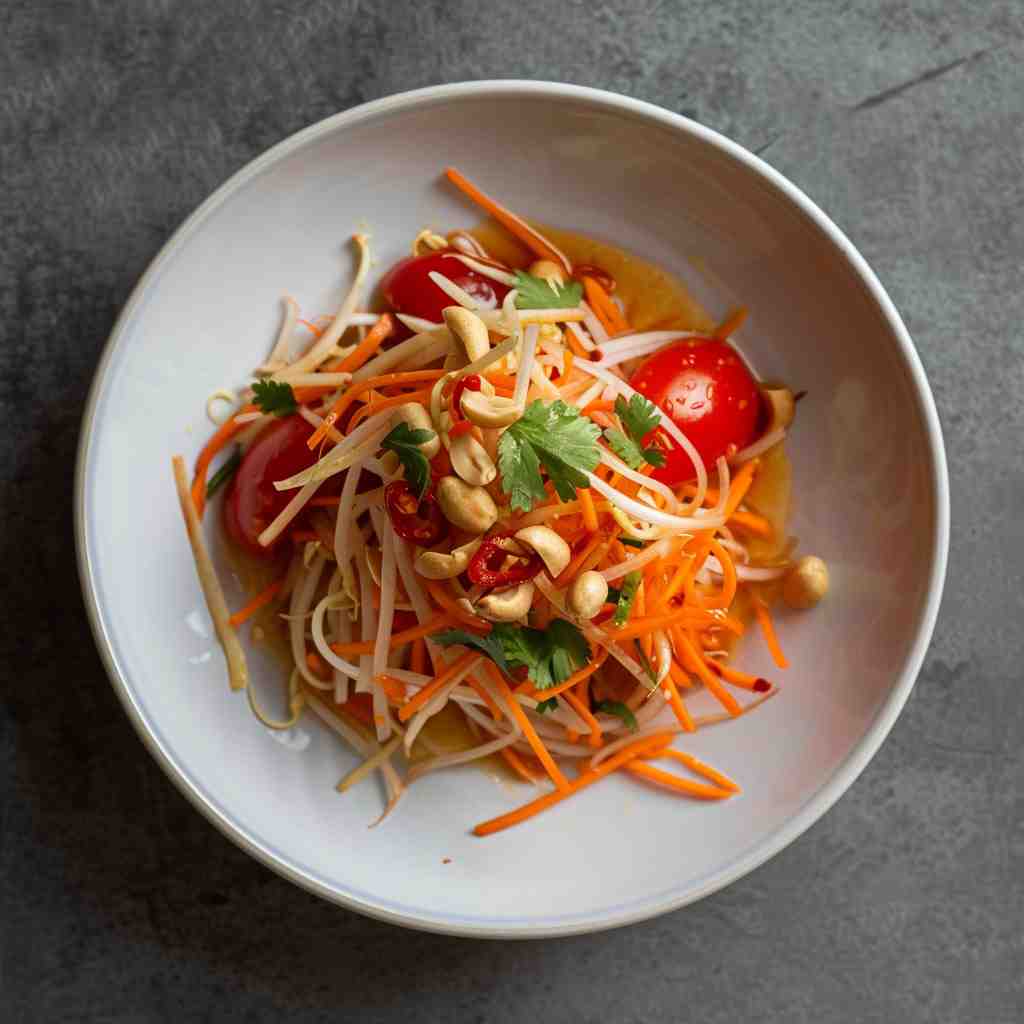
Papaya Salad 15
Shredded papaya, carrot, tomato and peanuts in a tangy spicy dressing made with crushed chili peppers, lime juice, minced garlic and tamarind.
-
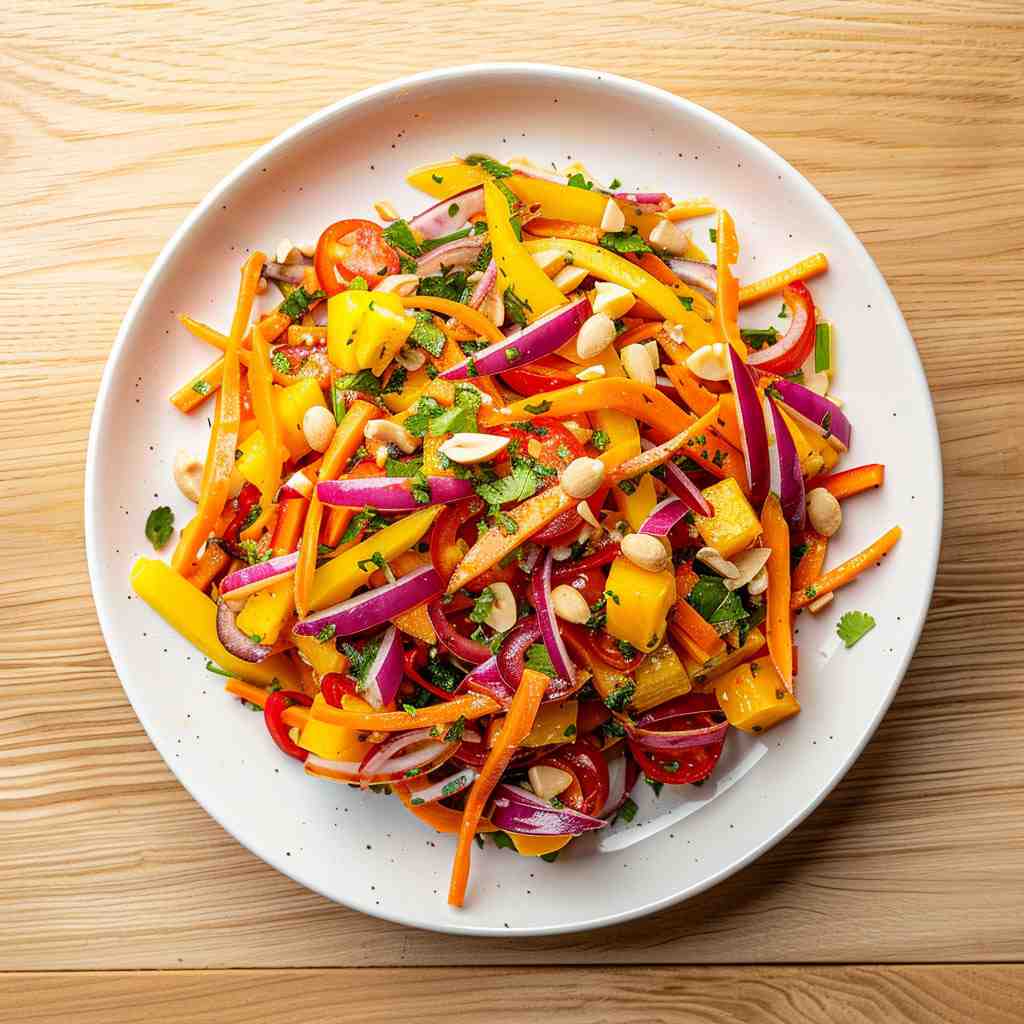
Mango Salad 15
Shredded young unripened mango, carrot, tomato, red onion and peanuts in a tangy spicy dressing made with crushed chili peppers, lime juice, minced garlic and tamarind.
-
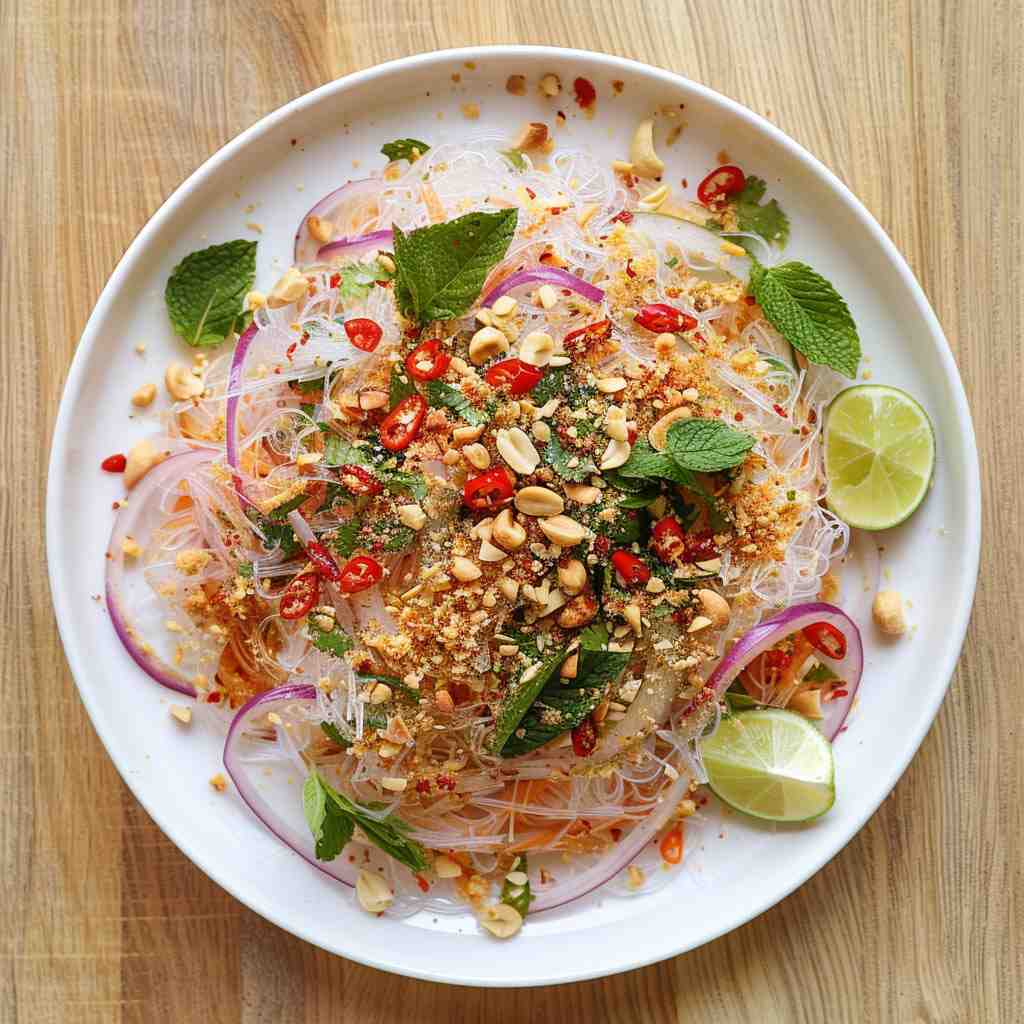
Glass Noodle Salad 15
Mung bean noodles, roasted rice powder, chili flakes, red onion, lime, mint, lemongrass and peanuts in a tangy spicy dressing.
Soups
Our selection of soups
-
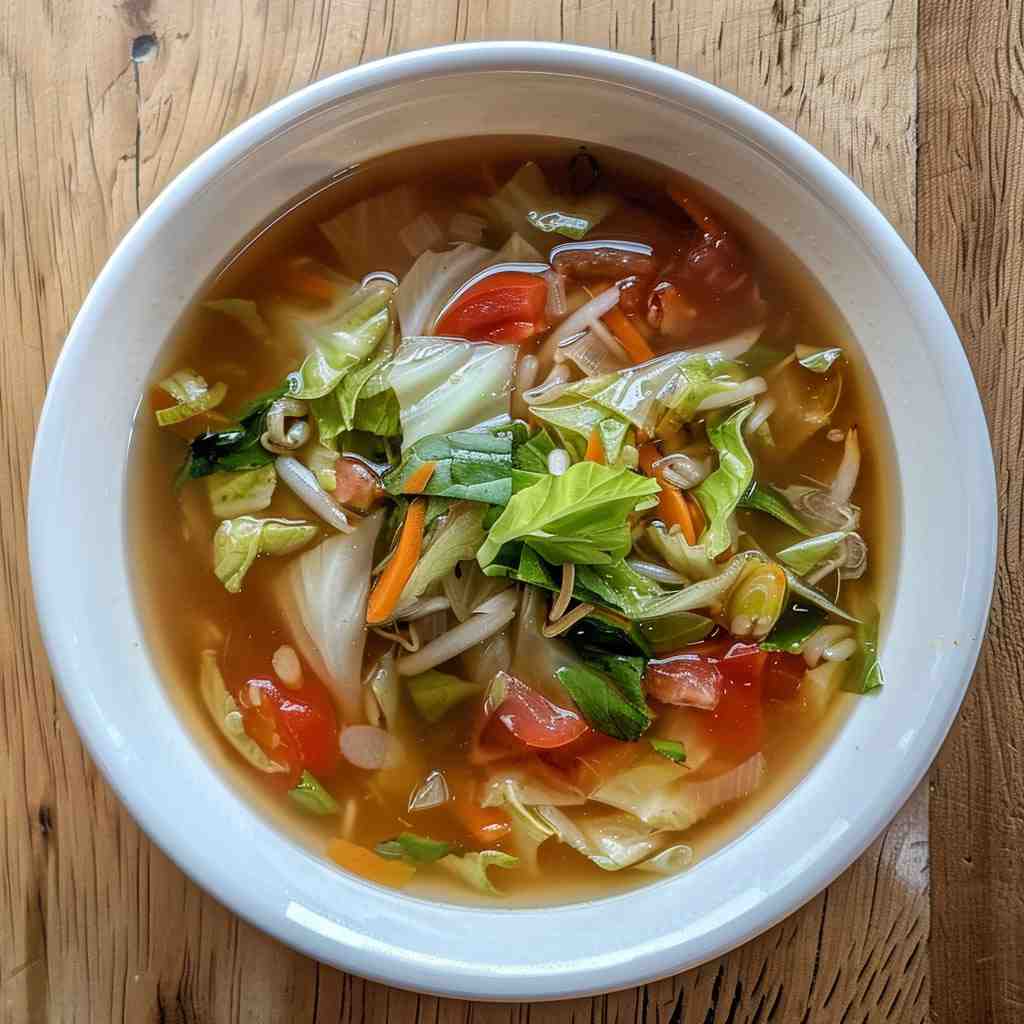
Spicy Sour Soup (Tom Yam) 15
Spicy sour clear broth with cabbage, squash, tomato, chili, galangal, lemongrass, lime leaf and a splash of coconut milk.
-
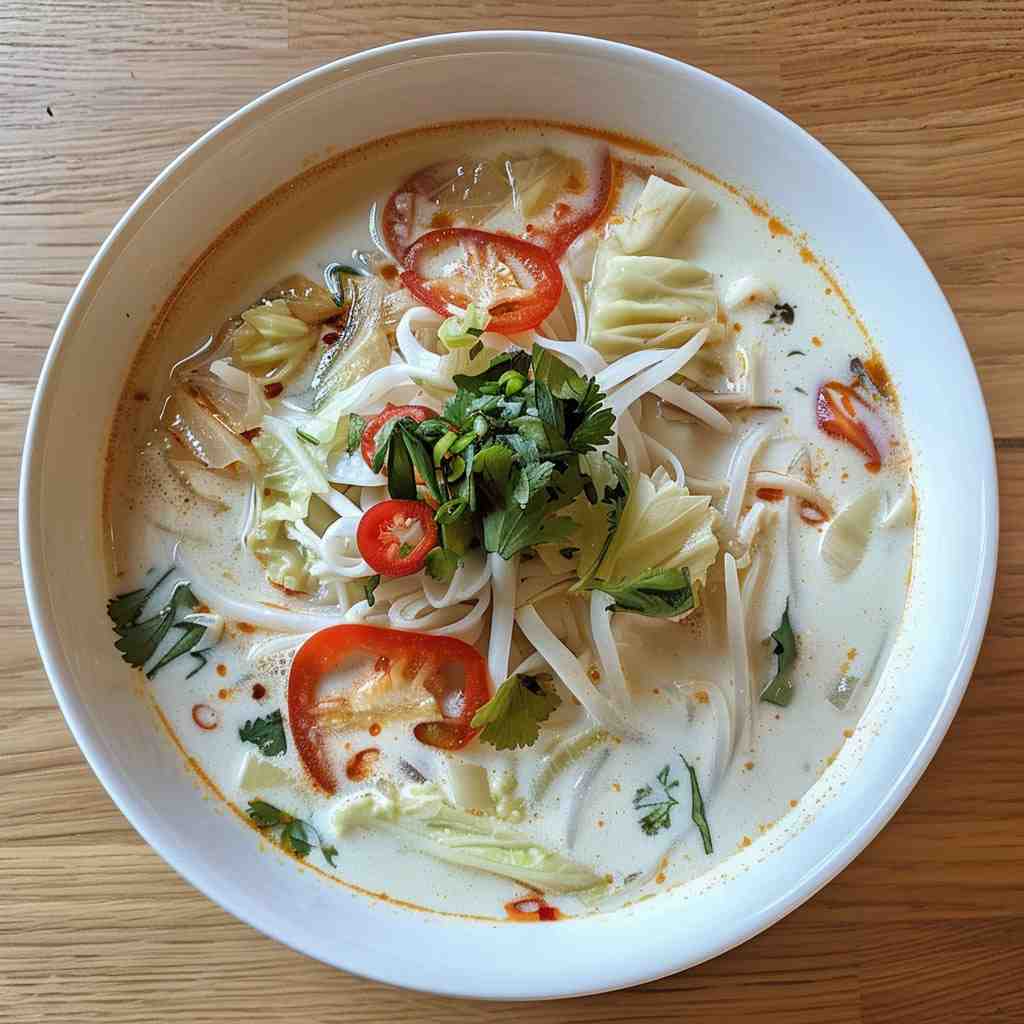
Noodle Coconut Milk Soup 15
Creamy spicy soup with cabbage, squash, tomato, coconut milk, chili, lemongrass, lime leaf and rice noodles.
-
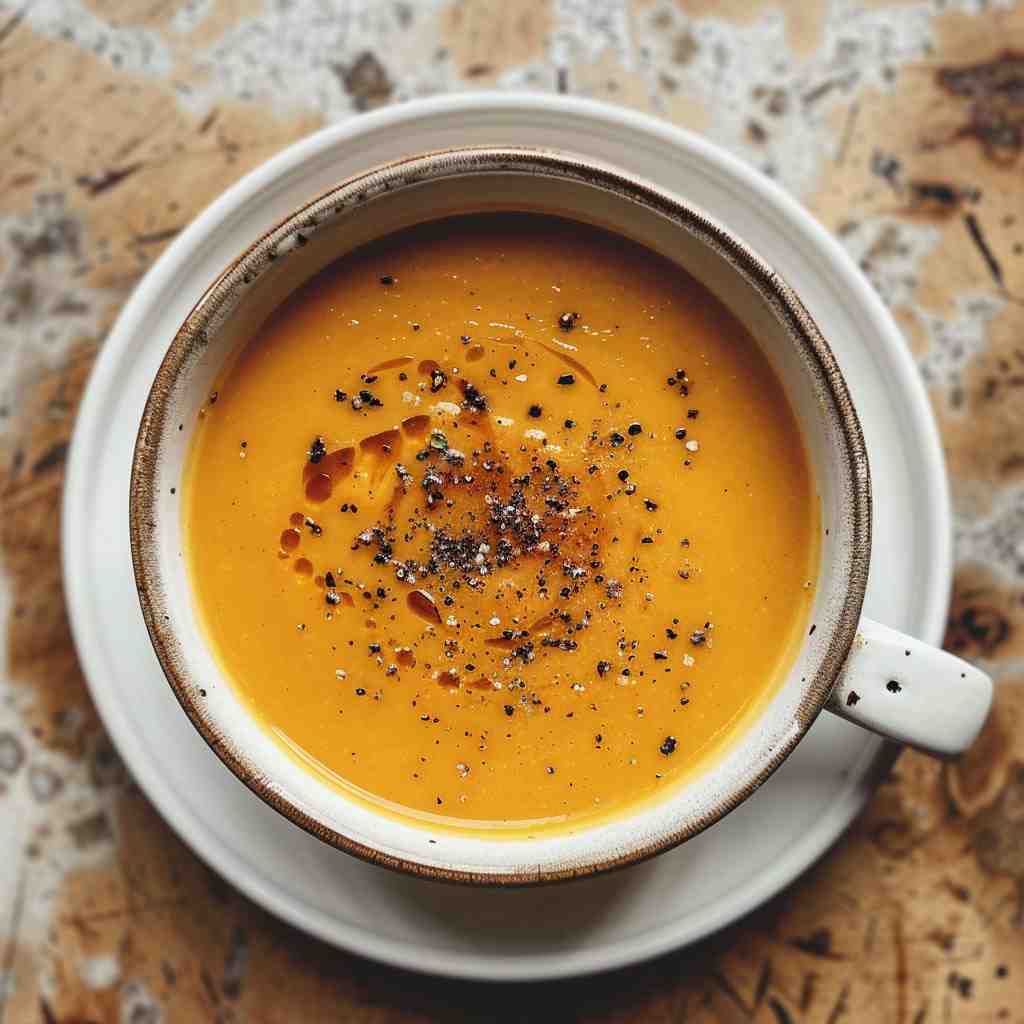
Pumpkin Soup 15
Asian pumpkin, coconut milk, white pepper, cilantro and tamarind blended into a light healthy soup.
Starters
-
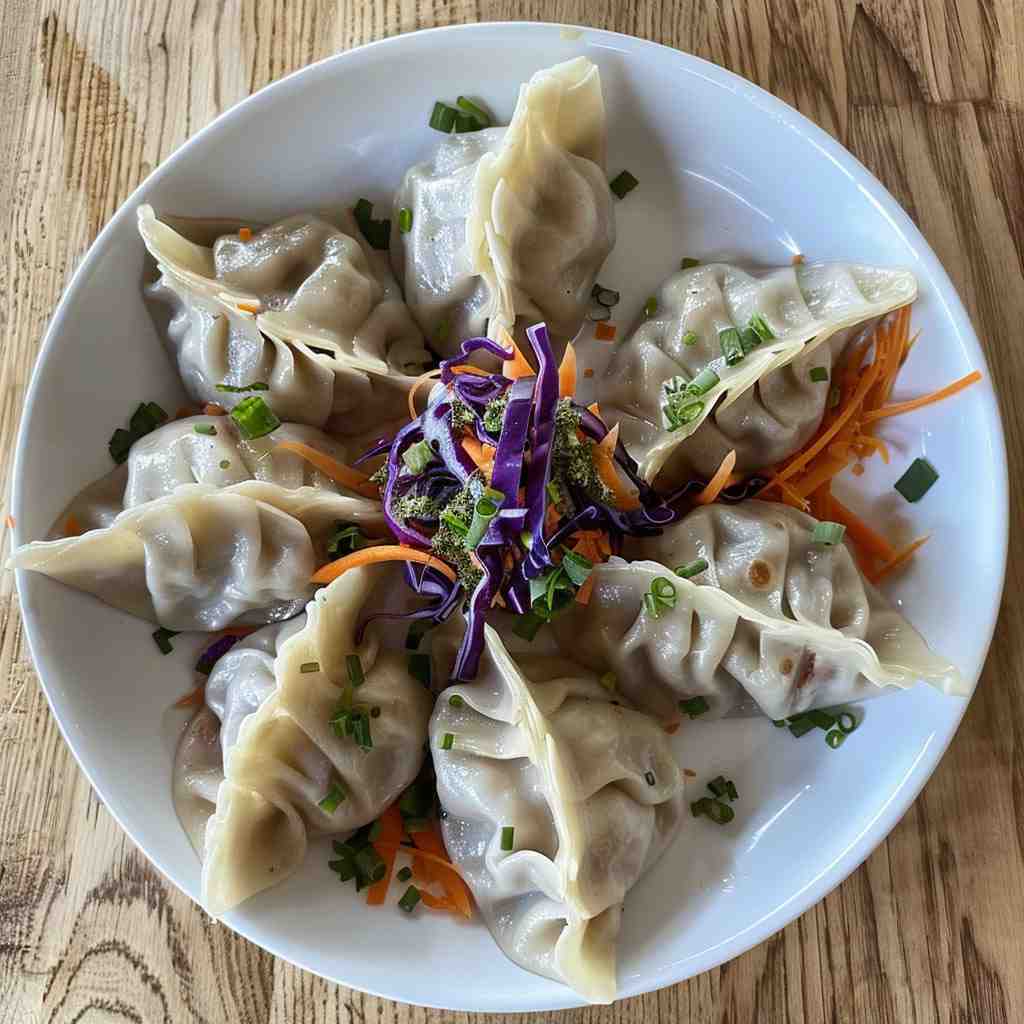
Steamed Dumplings 15
Shredded cabbage, green bean and chickpeas in a wheat wrapper.
-
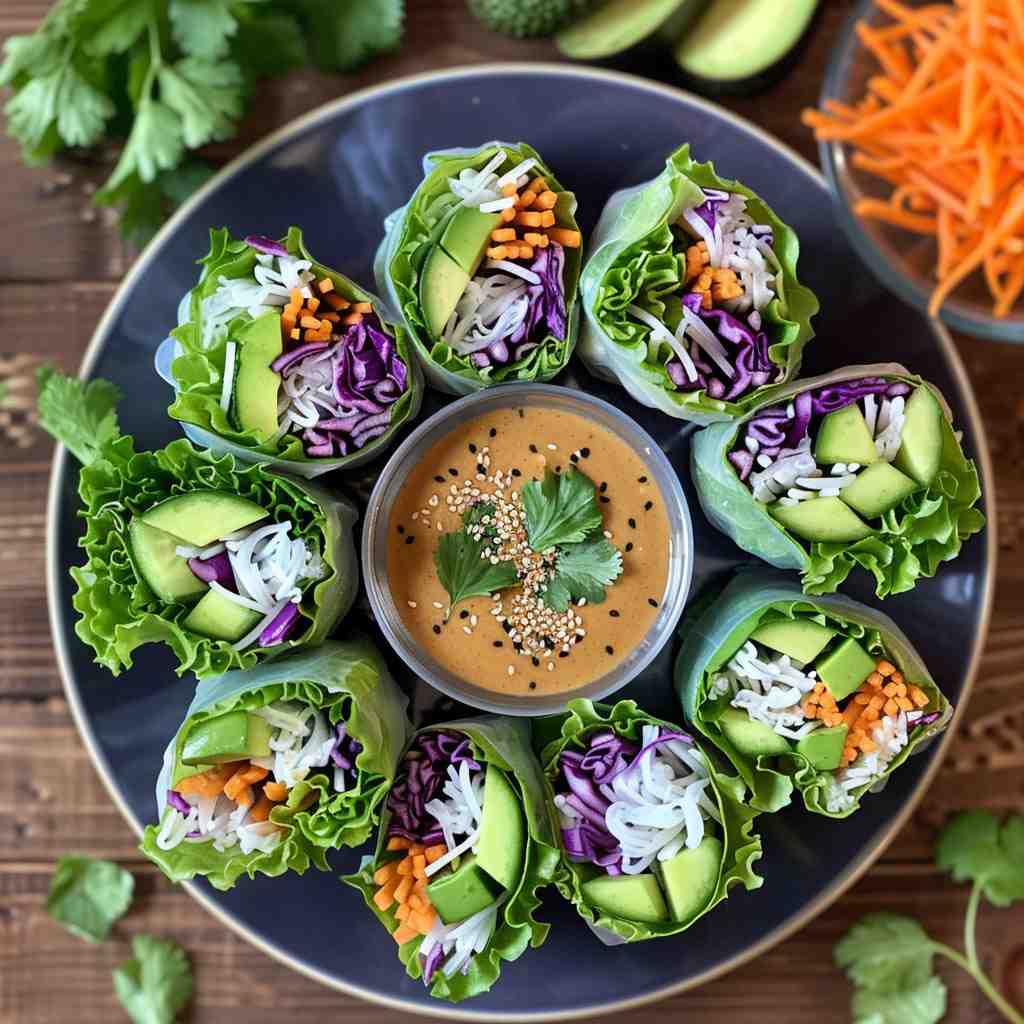
Summer Rolls (Fresh Spring Rolls) 15
Shredded lettuce, avocado, red cabbage, cucumber, ginger and cilantro in a transparent rice wrapper. Served with peanut sauce, tamarind sauce or ginger carrot dressing.
Side Dishes
-
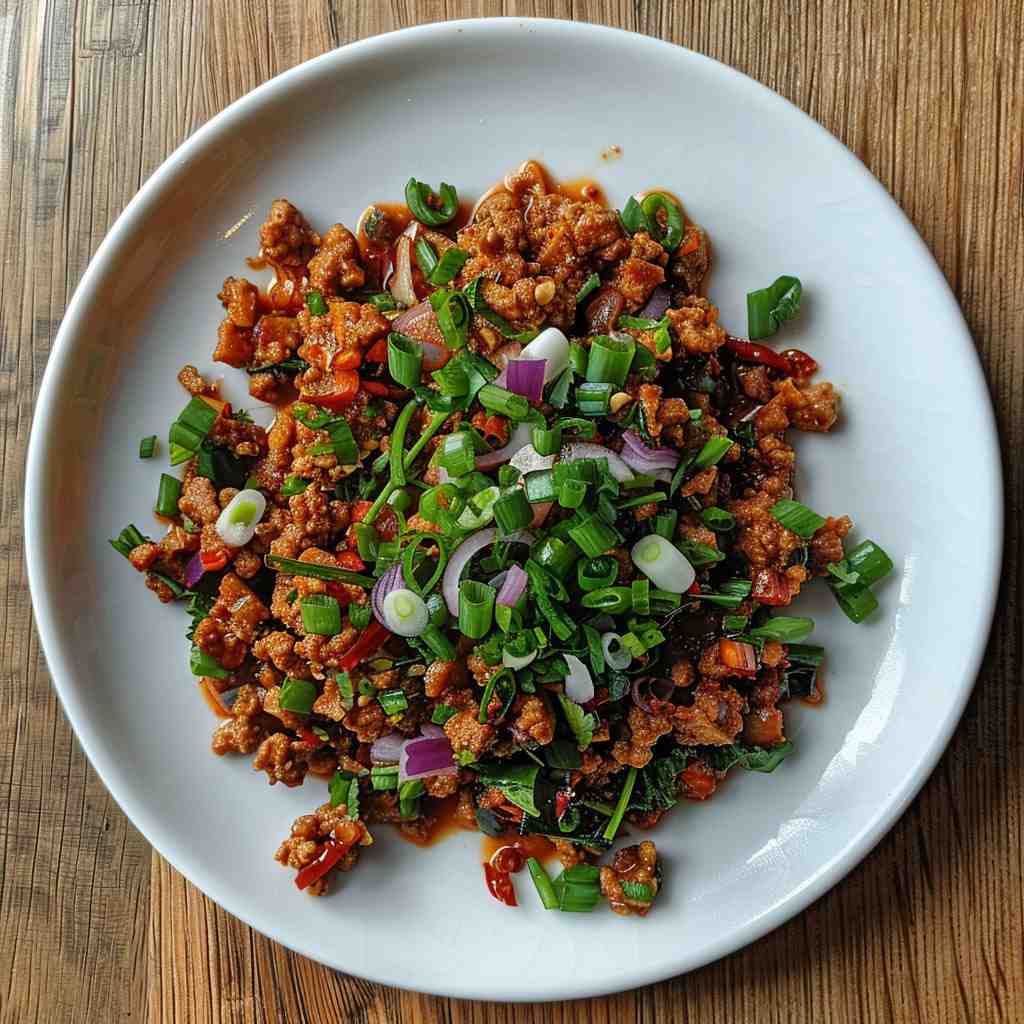
Laab Pak 16
A North-East Thai dish packed with flavor and spice, made with spiced ground tofu, roasted rice powder, lemongrass, red onion, green onion (chive), garlic, crushed chili pepper and soy sauce.
-
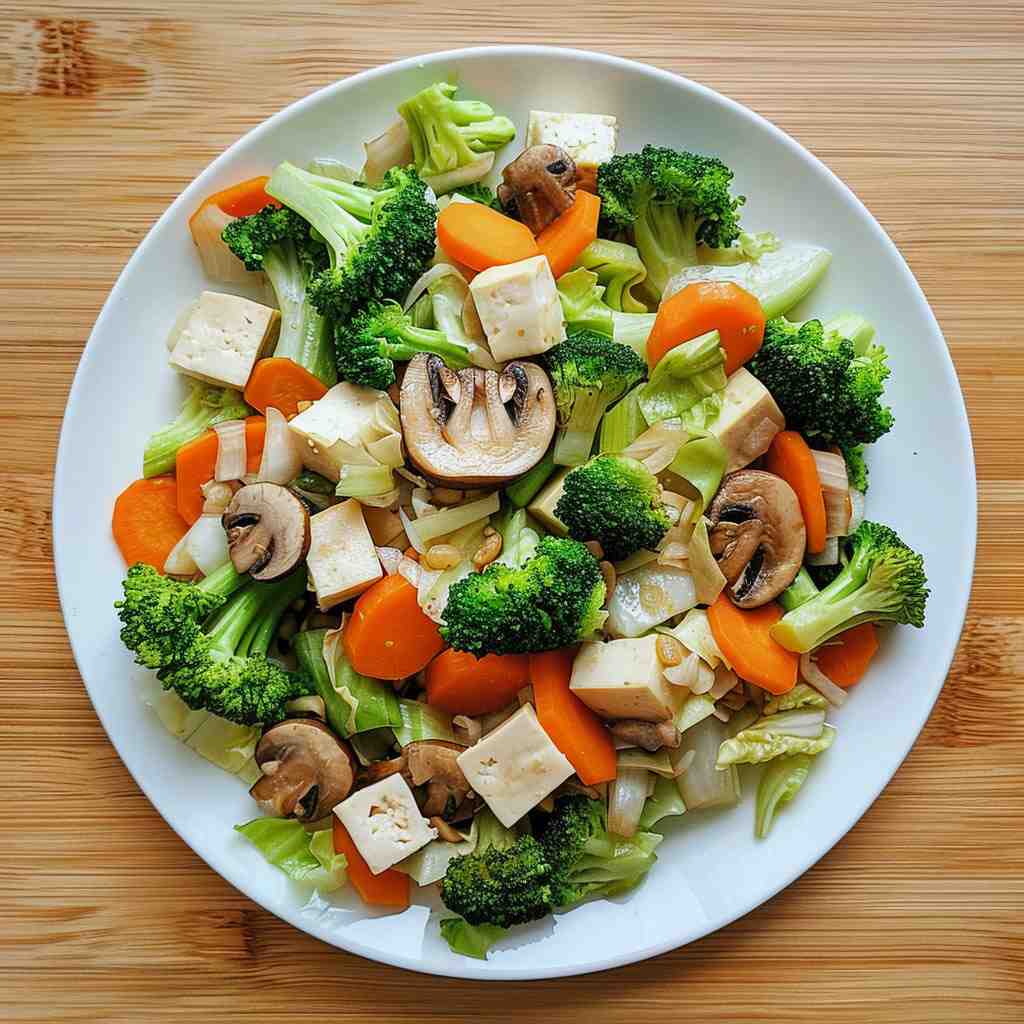
Steamed Vegetables with Tofu and Mushrooms 15
Mixed vegetables including broccoli, carrot, cabbage with mushroom,
Curries
-
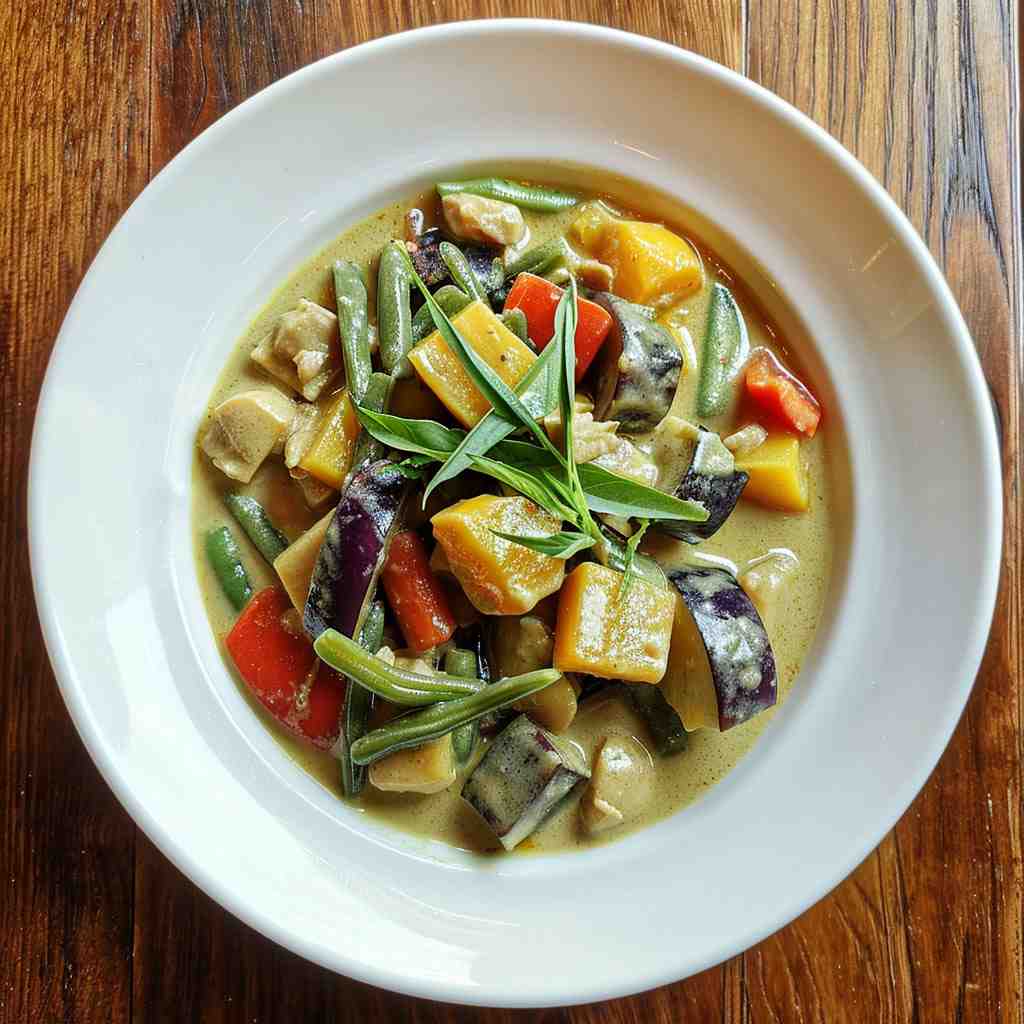
Green Curry 17
Slightly sweet, spicy curry with squash, green bean, bell pepper, lime leaf, lemongrass. Served with steamed brown- red rice or white jasmine rice.
-
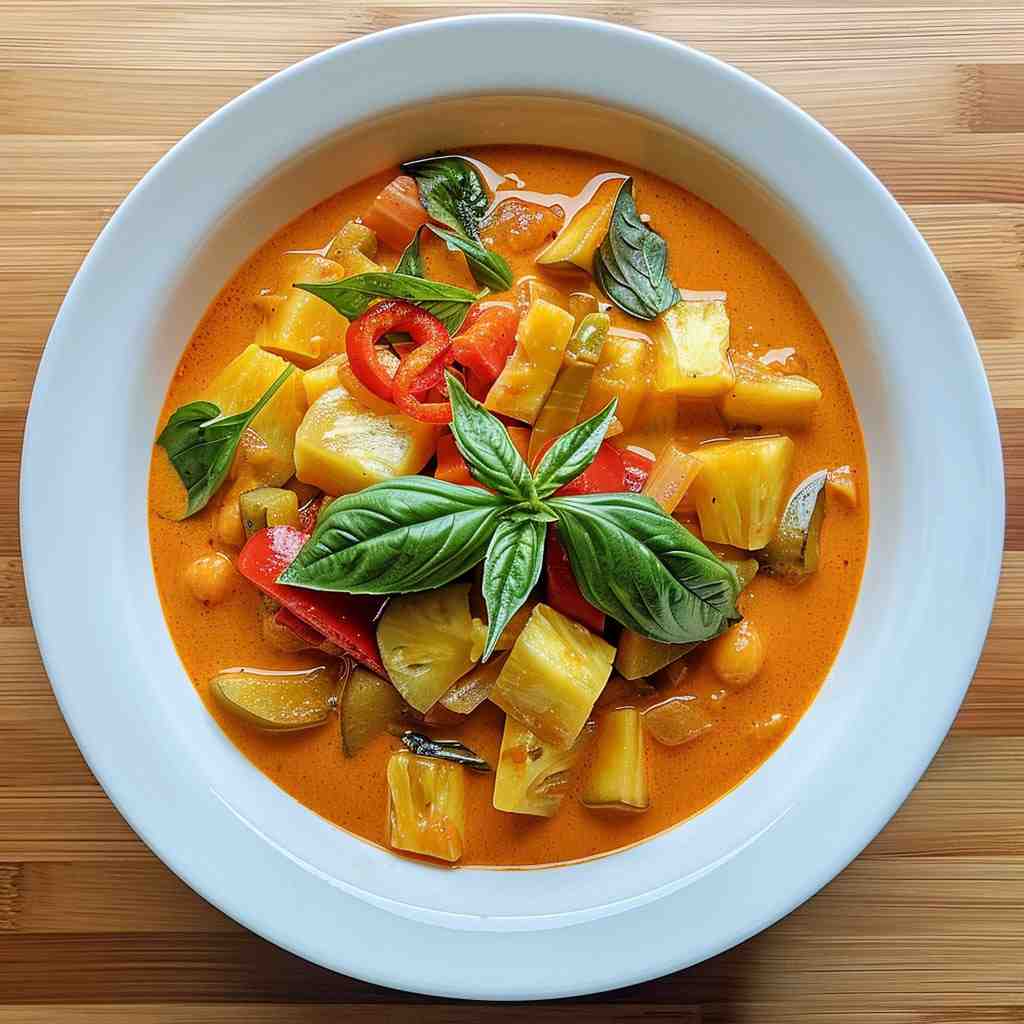
Red Curry 17
Creamy curry with red chili, cabbage, squash, bell pepper, pineapple and basil. Served with steamed brown-red rice or white jasmine rice.
-
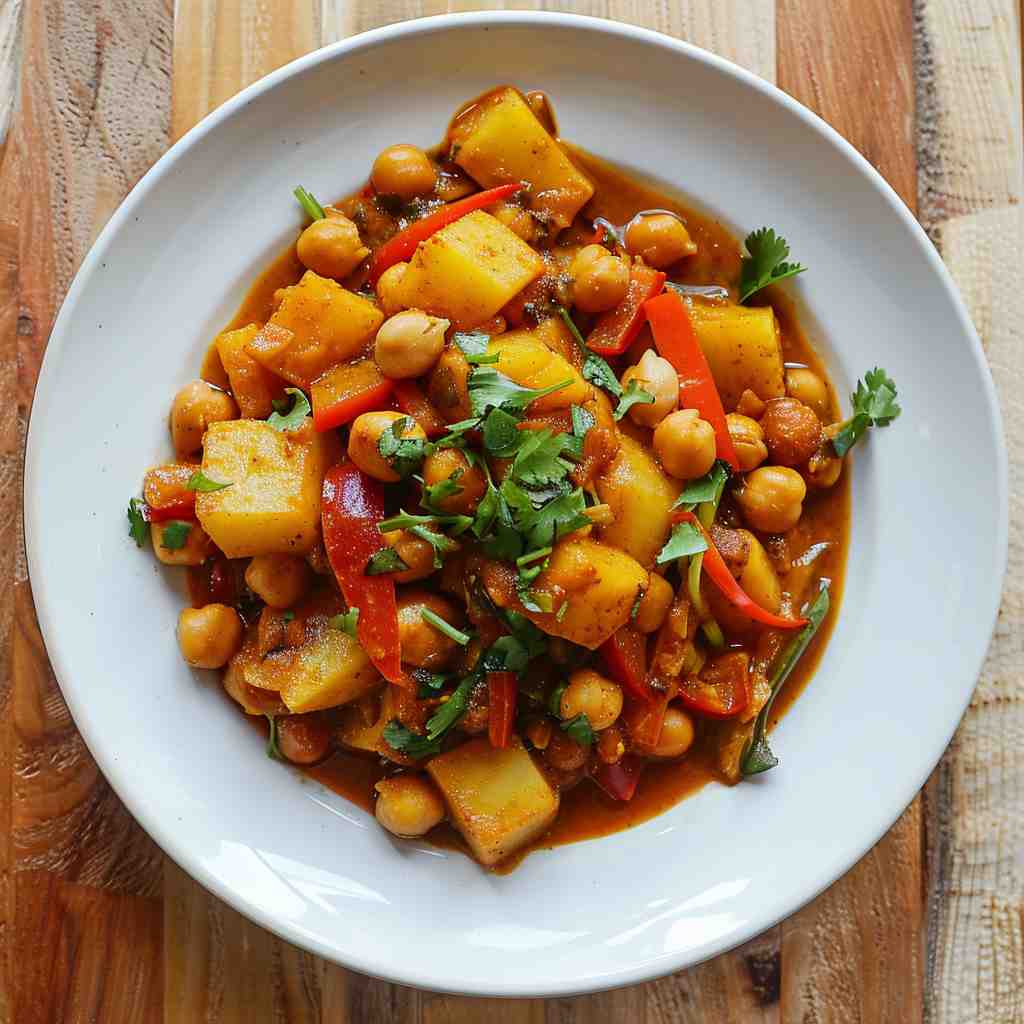
Massaman Curry 17
-
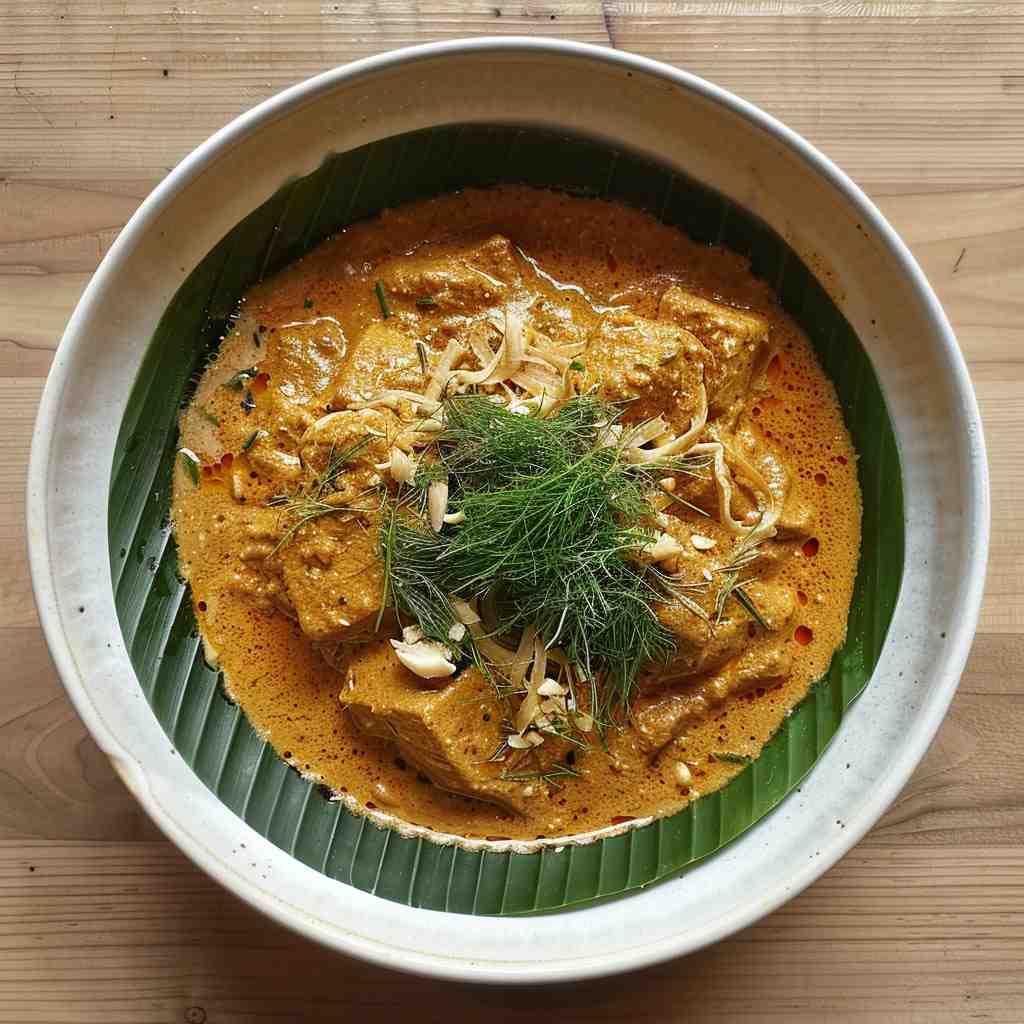
Haw Mok (NE Thai style curry) 18
-
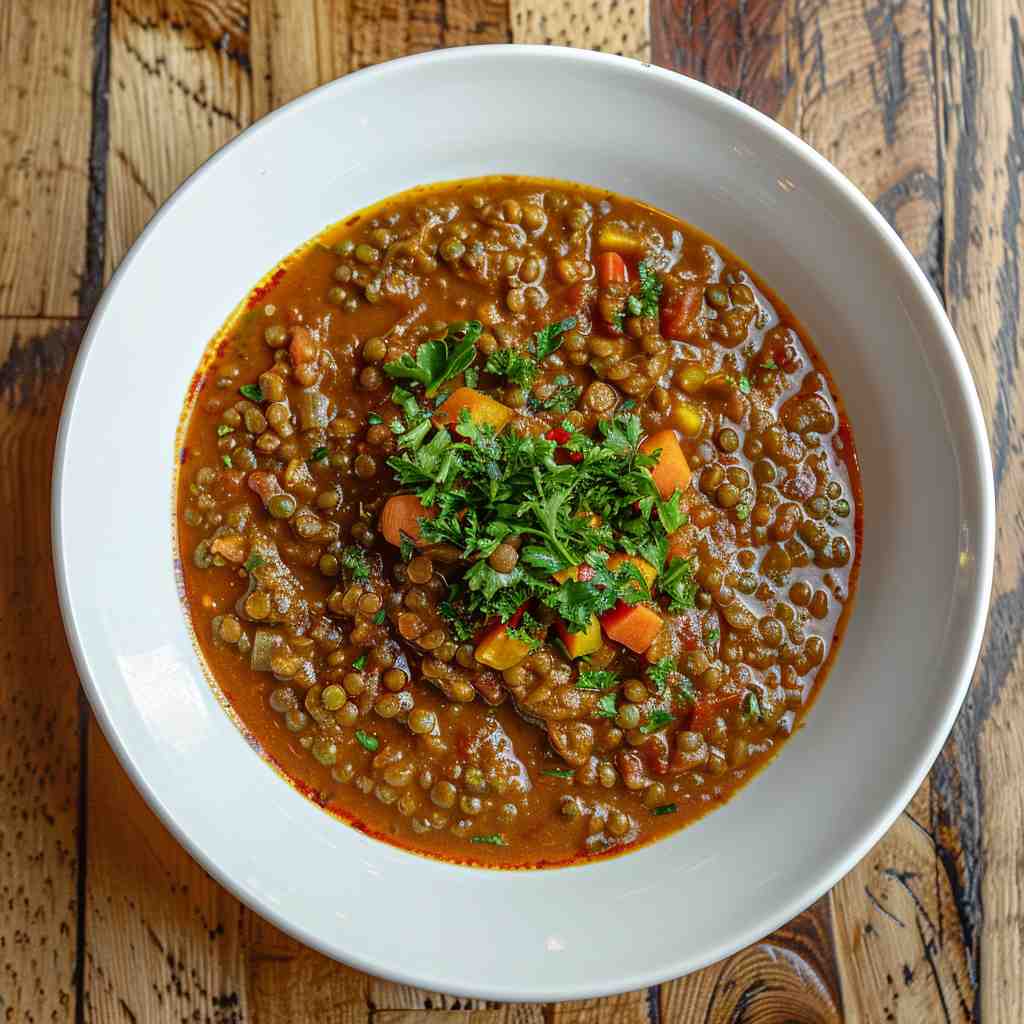
Lentil Curry 17
Lentils, chili, coconut milk, squash, peas, turmeric, cardamom, cumin seed, coriander seed, mustard seed, mace, cloves, fenugreek seed. Served with steamed brown- red rice or white jasmine rice.
-
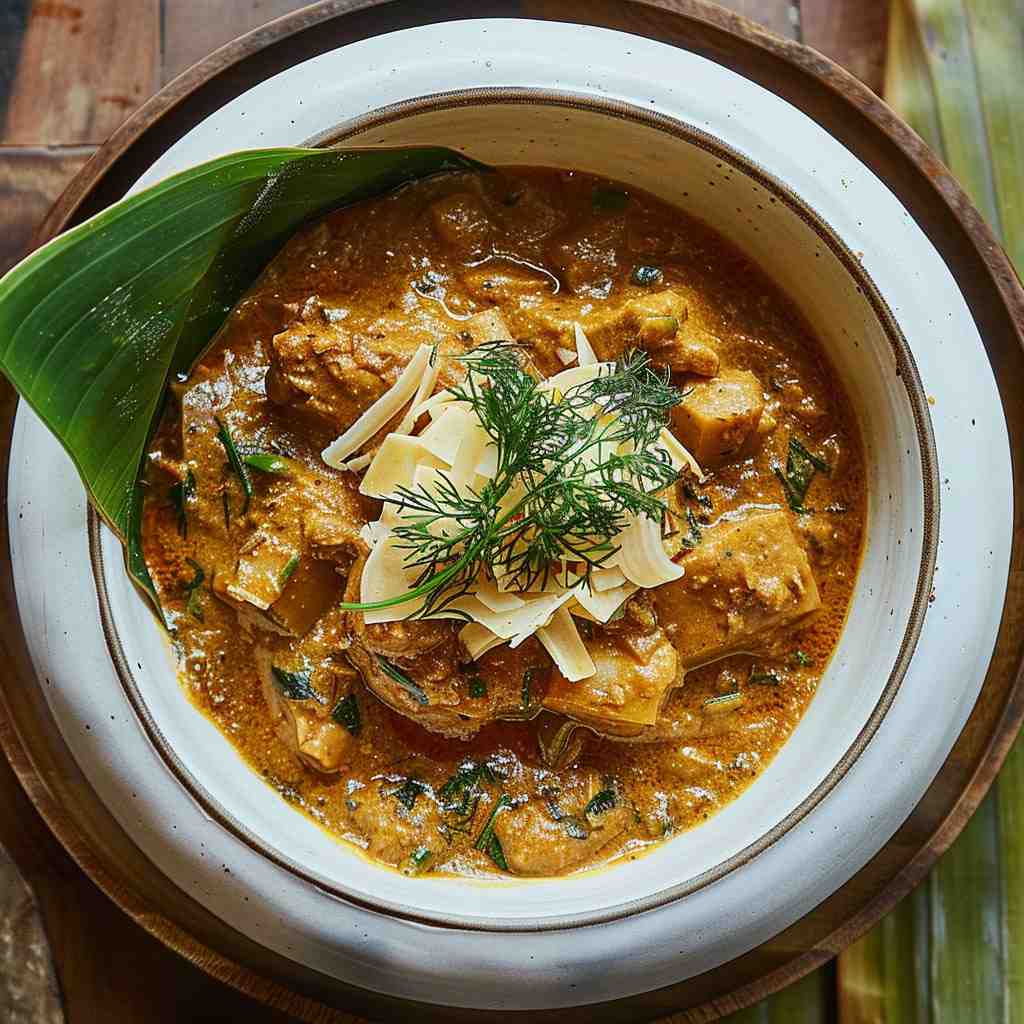
Mountain Curry 18
Thick curry made with snow peas, tofu, dried coconut pulp, cabbage, tree chestnuts. chili, cumin, dill, lime leaf, ground into a thick paste. Served with steamed brown-red rice or white jasmine rice.
-
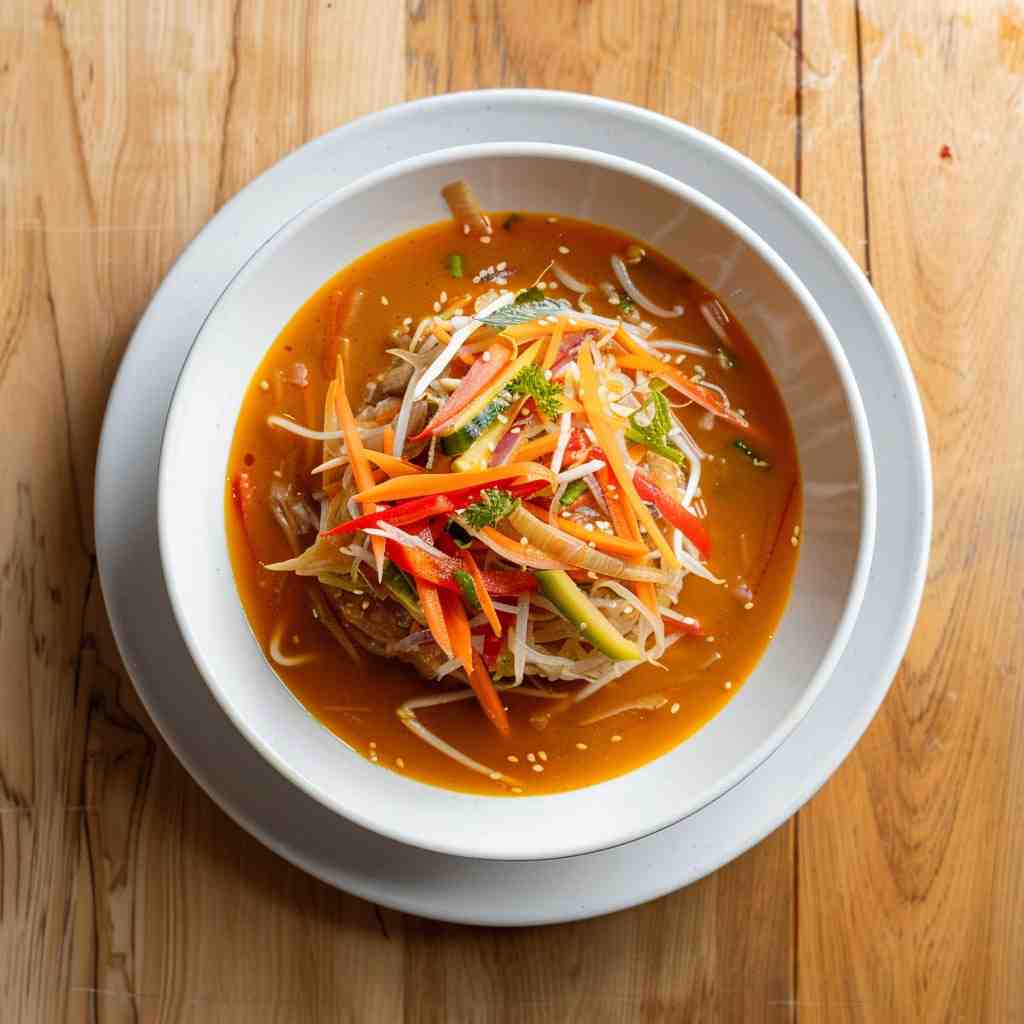
Gaeng Som (Orange Curry) 18
"Som" in Thai means both "orange" and "sour". Gaeng Som, also known as sour curry or orange curry, is a vibrant and tangy Thai curry with deep roots in the country's rich culinary heritage. Being named "sour curry" reflects its distinctive flavor profile. This curry is renowned for its bold and zesty taste, primarily derived from the use of tamarind as a souring agent. Originating in southern Thailand, Gaeng Som has become a staple in Thai cuisine, appreciated for its refreshing and spicy qualities. At Chakra we make the dish featuring a combination of fresh vegetables and diverse medley of flavors using tamarind, red chilis, lemongrass, galangal and kaffir lime leaves. A delicious dish made without coconut milk or oil. A great no oil option, yet as satisfying as heavier curries.
Rice and Noodles
-
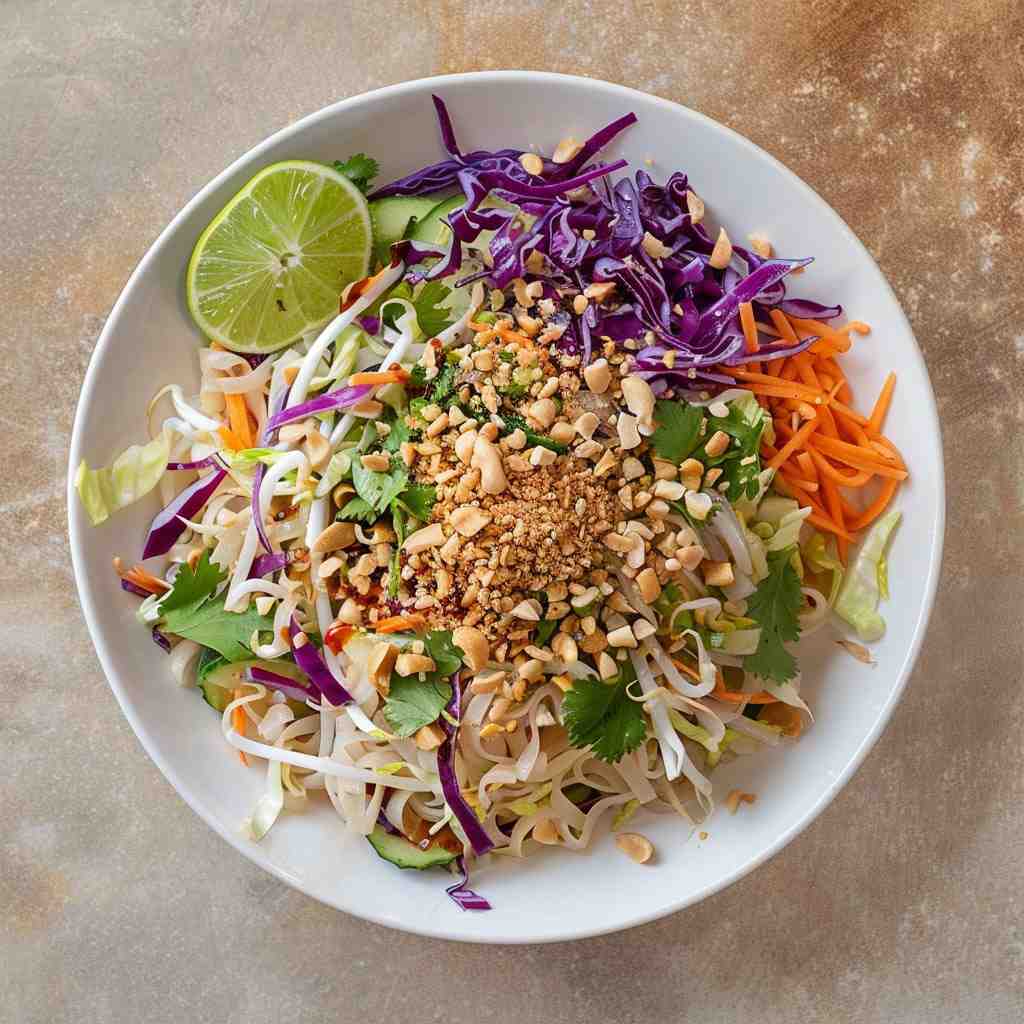
Pad Thai 17
Steamed version of the classic Thai dish with slices of carrot, kale, spring onion, tomato, peanut and bean sprouts.
-
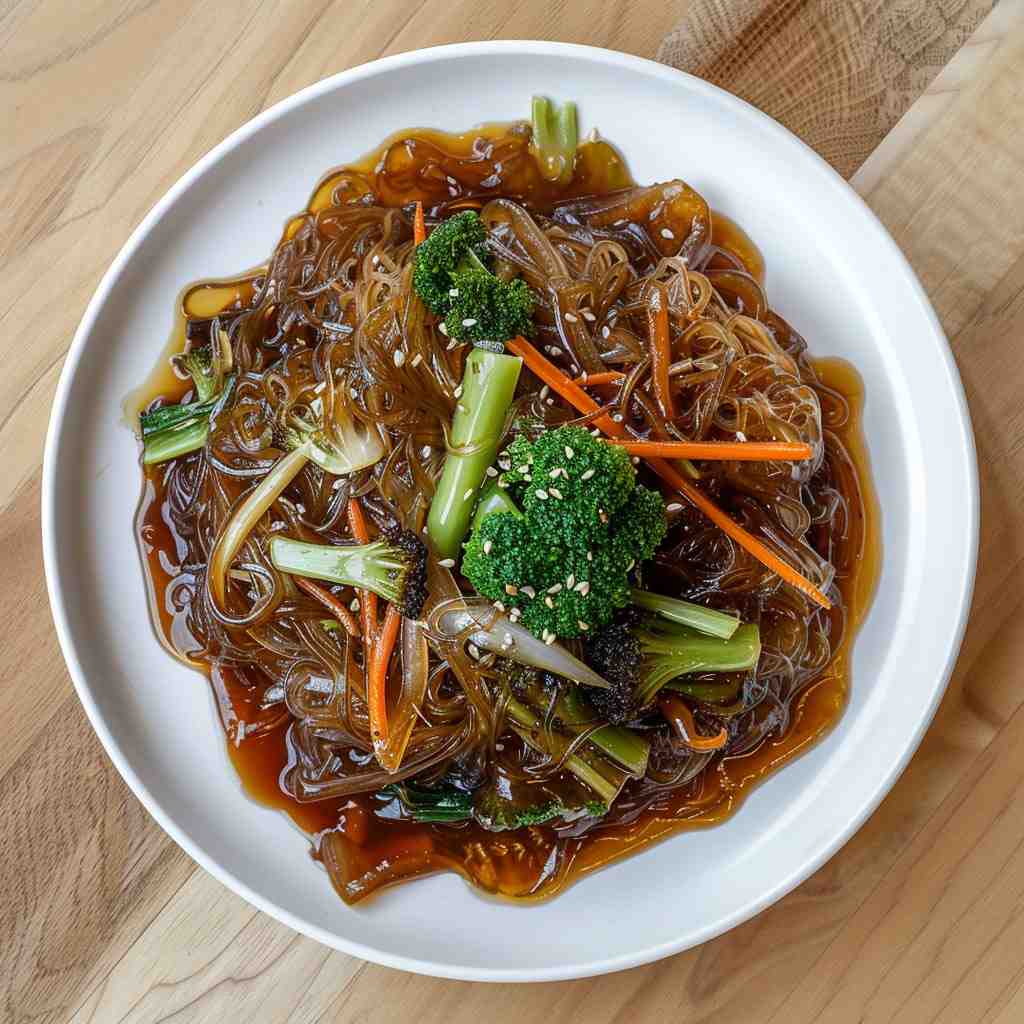
Clay Pot Glass Noodles 17
Mung bean noodles, asparagus, celery and black pepper in a slightly spicy, savory sauce.
-
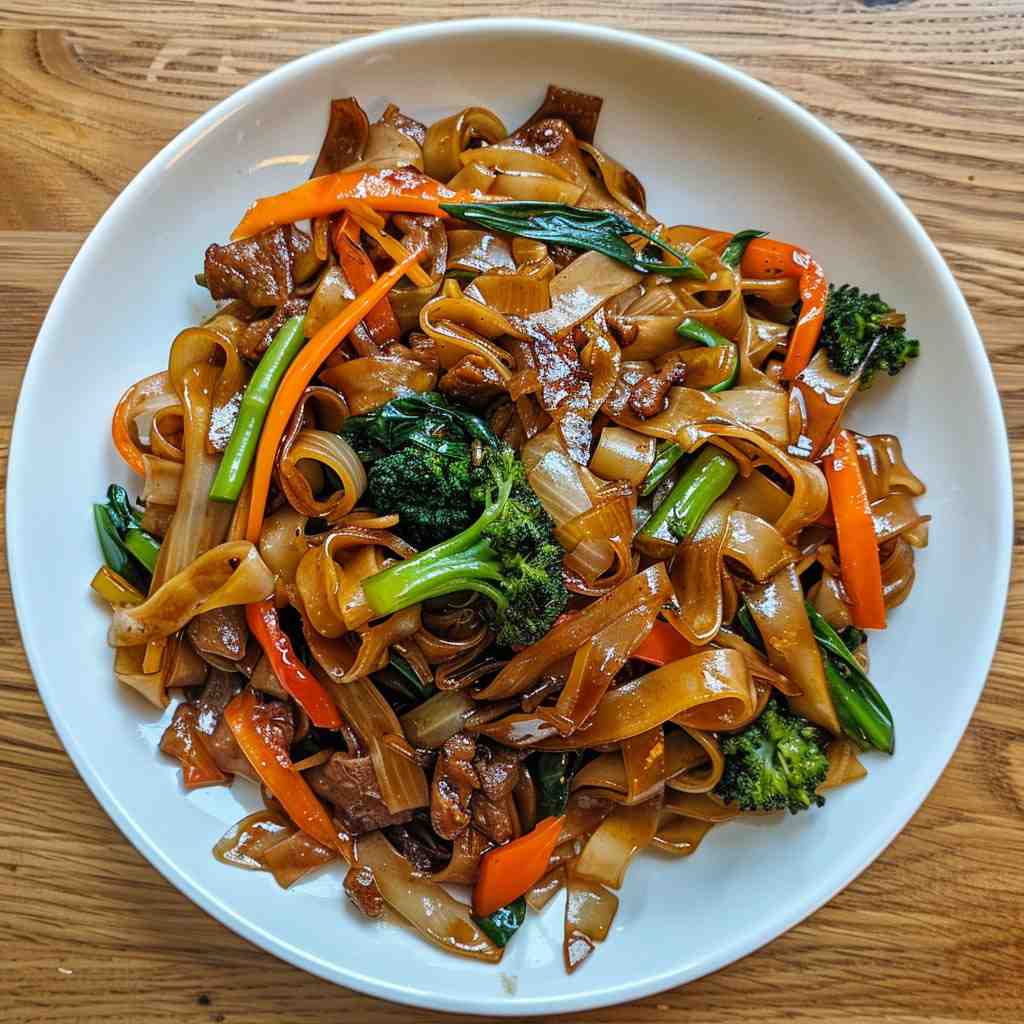
Pad See U 17
-
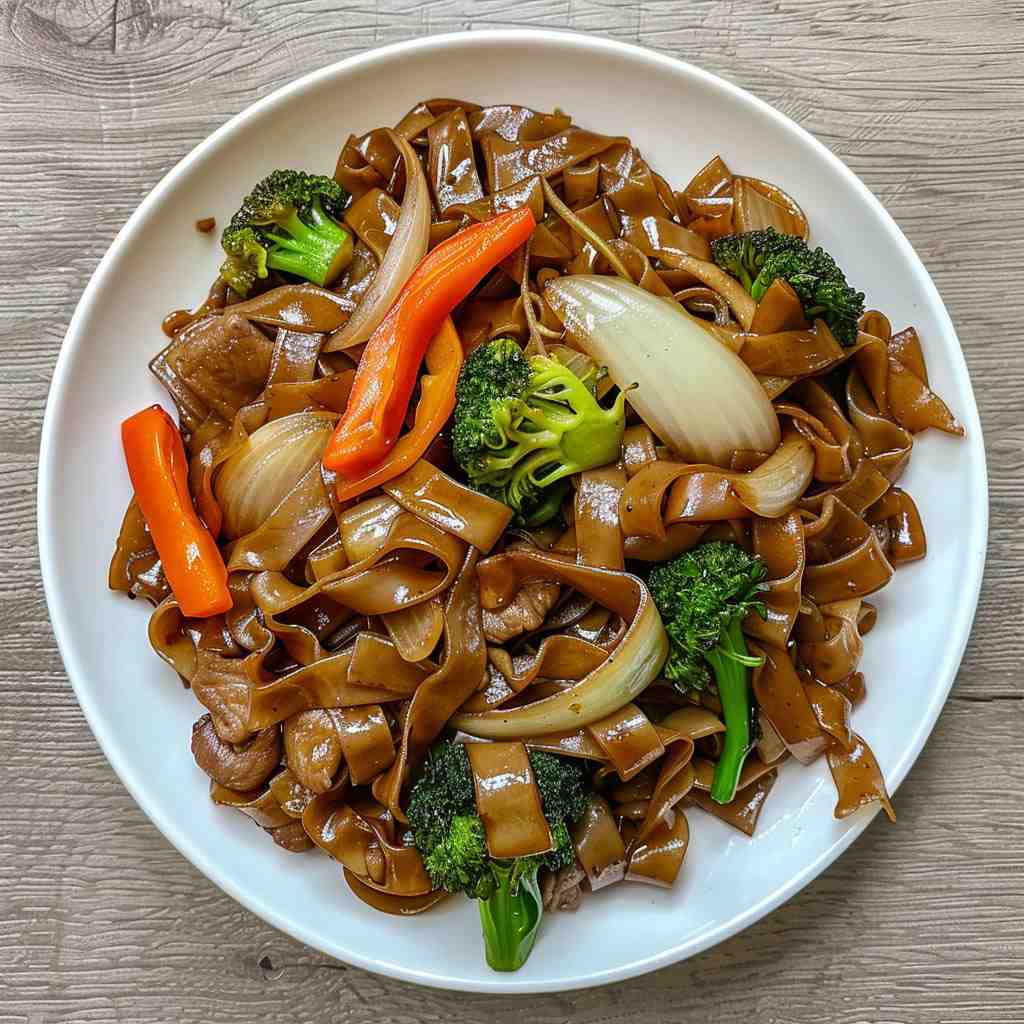
Pad Kee Mao (Drunken Noodles) 17
Additional Notes:
One of the defining features of Thai cuisine is its emphasis on fresh, locally sourced ingredients. Traditional Thai dishes incorporate a variety of vegetables, fruits, herbs, and spices, providing a broad spectrum of essential vitamins, minerals, and antioxidants. The abundance of fresh produce contributes to a diet rich in fiber, which promotes digestive health and helps maintain a healthy weight. Authentic Thai cuisine tends to be low in processed and refined ingredients. By relying on fresh produce, herbs, and spices, Thai dishes minimize the intake of additives, preservatives, and unhealthy fats commonly found in processed foods. Choosing Thai food can be a healthy alternative for those looking to reduce their consumption of highly processed meals, contributing to better overall nutritional intake. Thai dishes incorporate a variety of ingredients that are rich in antioxidants, such as turmeric, ginger, and garlic. Antioxidants play a crucial role in neutralizing free radicals in the body, helping to protect cells from damage and reduce the risk of chronic diseases. The presence of these antioxidant-rich ingredients in Thai cuisine contributes to its potential to promote longevity and overall health.